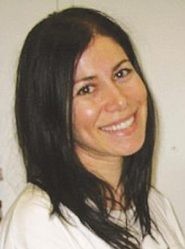How about the permanently quarantined?
Bidud. Bedidut. Hitbodedut. These Hebrew words overlap as they are all rooted in the Hebrew letters bet, daled, daled, equivalent in English to B.D.D.
•Bidud — quarantine or isolation.
•Bedidut — loneliness.
•Hitbodedut — contemplative solitude.
As I read about Israel’s quarantine — bidud, policy — the words bedidut and hitbodedut have been associatively swirling in my mind.
Normally, when you think of an isolated person or a person in isolation, what comes to mind is someone who is limited, physically, or maybe socially marginalized, or struggling with depression or perhaps a different form of mental illness, or maybe someone who might simply be self-absorbed.
Isolation is not normally an elective choice for a healthy person to put oneself in.
In the word bidud, isolation and quarantine, I also see the word bedidut, loneliness. The bedidut within the bidud. The loneliness of quarantine.
What are ways to penetrate this barrier and reach people in this hybrid of bidud-quarantine bedidut-loneliness? Elderly people already forgotten in a nursing home? Homebound people who are ill and socially cut off? Or anyone else who does not fit into conventional society’s social boxes?
These cautionary measures are all in place in order to prevent the spread and G-d forbid the mortality that coronavirus potentially poses. But make no mistake, in its own way, bedidut, chronic emotional loneliness and isolation, can be a killer too.
The bidud-bedidut has always been there. Now we are more aware of it as it’s new normalcy has stripped it of its social stigma (to an extent).
In contrast to bidud and bedidut, hitbodedut, contemplative solitude, has traditionally been a voluntary spiritual practice. Like going on that solo hike or meditating in the forest or at home, in order to reach our deepest quietest and yet most audible internal core. That’s hitbodedut.
A leading pedagogue in Israel, Rabbi Dov Singer, who was on a recent visit in the US to promote his new book, “Prepare My Prayer,” was diagnosed with coronavirus upon his return to Israel.
In his book about prayer, Rabbi Dov talks about hitbodedut, specifically as cultivated by Rabbi Nahman of Breslov. Hitbodedut is a hallmark of the Musar tradition, as well as the legacy of Rabbi Nahman.
Various texts about hitbodedut from the newly released “Prepare My Prayer” can resonate as an opportunity to integrate this practice into the imposed bidud, isolation or quarantine. Because hitbodedut, a form of mediation, might be one of the coping mechanisms or for our increasing quarantines. Even if briefly, for a few precious minutes, hitbodedut might be helpful.
Being in isolation is not easy. It’s not a reflex reaction to embrace a spiritual practice among the chaos or the cabin fever.
Of course, distractions can be helpful, such as speaking with friends by phone or finding creative ways to interact with them. And there’s always that never ending list of books to read we all keep. But with the technology, we can all still share in the connectivity and burden with those who are quarantined.
While technology can never replace the power of face-to-face human presence, for this hopefully temporary situation it’s a blessing.
Yedidut, the Hebrew word for friendship, has a similar linguistic lilt to the Hebrew root letters of B.D.D., with the repetitive double Hebrew letter daled, D.D. This is the best antidote to bedidut — yedidut. Maybe, ironically, more of that (caring and friendship between people) will emerge from this whole quarantine-bidud bedidut hitbodedut trifecta.

 47.0°,
Mostly Cloudy
47.0°,
Mostly Cloudy 





